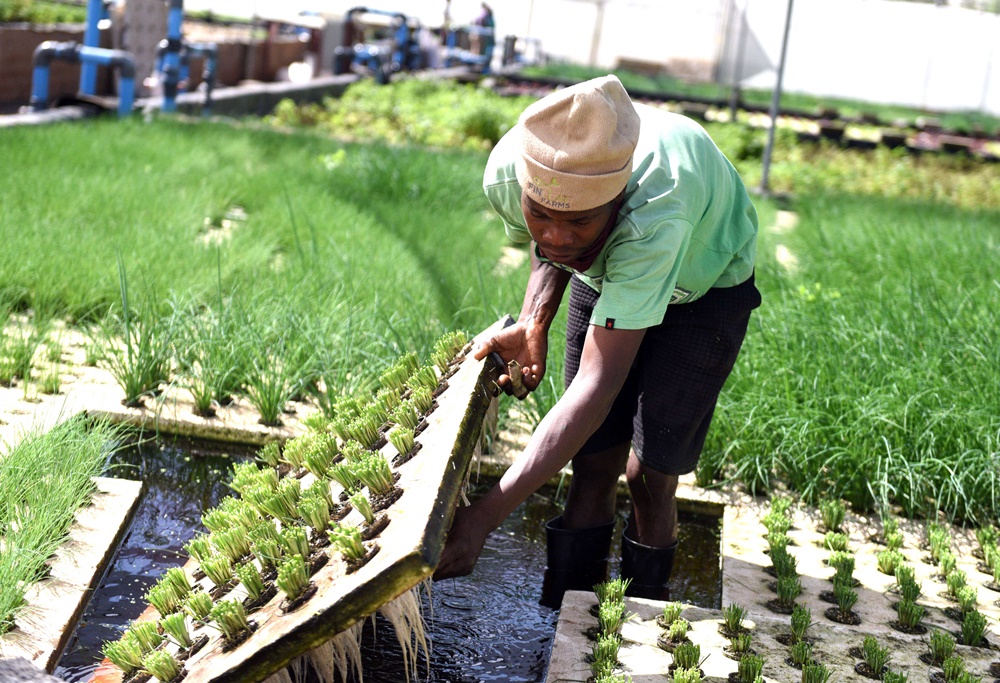An innovative refugee-led organisation (RLO) named Women for Action is in charge of an aquaponics project in Malawi’s Dzaleka refugee camp to address food insecurity and provide women with essential new skills.
Cécile Pango is the founder and manager of the female-run RLO, which is working with the Refugee-led Innovation Fund of the UN agency for refugees to train 100 women with the intention of not only feeding at least 1000 people but also giving women the skills they need to hold management and marketing positions.
“The Women for Action Project offers aquaponics farming instruction. The goal is to grow vegetables without soil, Cécile explains to me.
Women for Action, which was started by women in 2012, aims to provide women with financial independence so they may “avoid falling into abuse and violence,” according to Cécile.
We assist with these organisations to overcome the unique contextual problems they encounter in order to ensure their success.
Erika Pérez Iglesias is in charge of the UNHCR’s Innovation Fund for Refugees.
“The first thing we did”, according to Cécile, was use the energy generated by the biomass to make briquettes. It enabled women to produce and market their own goods, becoming business owners.
Cécile informs me that with the organization’s most recent aquaponics project, the “first phase is over” and “100 women and six men are now trained in computing.”
She explains further that the creation of an aquaponics site is the focus of the second phase, which is still in progress, while the introduction of fish will occur during the third phase. Water will be used to grow fish, and this water will also hydrate plants. As a result, this endeavour is sustainable since the fish will keep growing.
Read also: Helios Towers Plc Acquires Airtel Africa’s Malawi Tower for about $55 million
Profitability of aquaponics
Another objective is to make the aquaponics site commercially viable.
“The current site is very small,” Cécile continues. Although it is adequate for training, it is insufficient for commercialization.
The project collaborates closely with the Refugee-led Innovation Fund, which was established last year to support “a fundamental shift in the way humanitarian and development programming gets designed and delivered, ensuring forcibly displaced and stateless people take centre stage in the decisions affecting their lives.” according to Erika Pérez Iglesias, who heads the UNHCR’s Refugee-led Innovation Fund.
Erika adds that “It’s not just funding: It’s also project management support, technical expertise, and peer-to-peer networking,”
Cécile explains further in the affirmation that the cooperation strategy is an effective one.
“They are flexible, the Refugee-led Innovation Fund, it does not put pressure on us so we are not stressed. Instead it stresses what you have done well and does not blame your faults. Therefore, we can take time to reflect and make minimum errors.”
Additionally, groups who want to help the RLOs and the refugee-led innovation fund can participate.
Erika continued, “While each project must be ‘owned’ by an RLO, organisations who are keen to support this exciting initiative could reach out to local RLOs to propose avenues for collaboration,” added Erika. “Organisations or individuals who would like to collaborate with or support the Fund (or specific projects) with funding or in-kind support can always reach out to us.”
Understanding Aquaponics
According to a joint report from the Food And Agriculture Organization and SmartFish, aquaponics is the cultivation of plants and aquatic animals in a recirculating environment.
Aquaponics is a cooperation between plants and fish, and the term originates from the two words aquaculture (the growing of fish in a closed environment) and hydroponics (the growing of plants, usually in a soil-less environment).
Aquaponic systems come in various sizes, from small indoor units to large commercial units. and they can be either freshwater systems or contain salt or brackish water.
In other words, according to the Aquaponics Gardening Community, cited by Thorarinsdottir, aquaponics is the cultivation of fish and plants together in a constructed, recirculating ecosystem utilising natural bacterial cycles to convert fish waste to plant nutrition. This is an environmentally friendly, natural food-growing method that harnesses the best attributes of aquaculture and hydroponics without the need to discard any water or filtrate or add chemical fertilizers.




